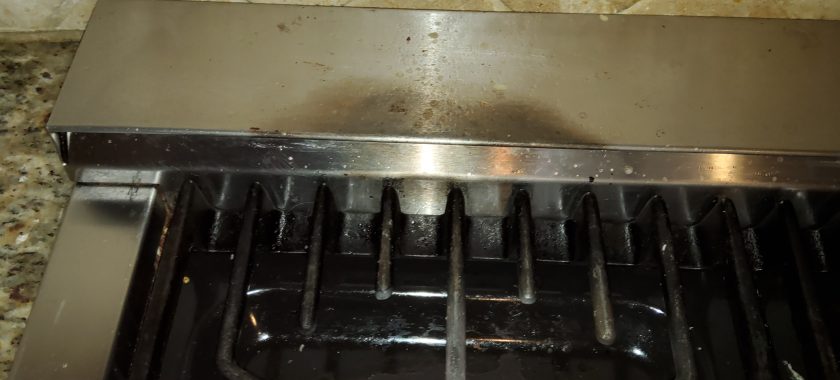A properly functioning gas stove should deliver a steady, even flame and operate quietly. When popping or snapping sounds start coming from the burners, it is not only annoying but often a sign that something is wrong. While these sounds may not always indicate a severe malfunction, they do deserve attention—especially if they become frequent or are accompanied by irregular flame behavior. Two of the most common reasons for popping noises are moisture trapped inside the burner components and issues with the ignition timing system. Understanding these causes can help you react quickly and prevent further damage to your stove.
Why Moisture Causes Popping Sounds
Moisture in the burner is one of the simplest yet most overlooked causes of popping noises. Gas burners are made up of multiple small openings designed to release gas evenly. When these openings become wet, moisture obstructs the flow of gas and disrupts combustion.
How Moisture Gets Inside the Burner
Several scenarios can lead to moisture build-up:
- Spills during cooking – Boiling water, sauces, soups, or oil splashes can enter the burner ports.
- Aggressive cleaning – Washing burner caps or grates under running water without allowing them to dry properly.
- Steam accumulation – Cooking for long periods, especially with oversized pots, can introduce steam into burner openings.
When gas tries to ignite around moisture, it creates small bursts of pressure. This is what leads to the popping or snapping noises you hear.
Signs that Moisture Is the Cause
- Popping happens mostly at startup.
- The flame appears uneven or flickers.
- The burner struggles to ignite consistently.
- The sound disappears after the stove runs for a few minutes.
Solutions for Moisture-Related Popping
If moisture is the issue, the remedy is often simple:
- Remove the burner caps and allow them to dry completely.
- Use gentle heat (such as your oven on lo) to speed up drying.
- Avoid immersing burner parts in water unless absolutely necessary.
- Clean spills immediately to prevent liquid from seeping into the burner assembly.
If popping continues even after drying the components, the issue may be deeper than moisture and require professional inspection.
Incorrect Ignition Timing and Its Impact
Popping sounds can also indicate a more technical issue: incorrect ignition timing. In gas stoves with electric ignition, the timing between gas release and spark generation must be precise. If there is a delay or mismatch, small pockets of gas can accumulate and then ignite suddenly, creating a popping sound.
What Causes Incorrect Ignition Timing?
Several components influence ignition timing:
- Faulty spark electrode – A worn or dirty electrode may not spark at the right moment.
- Damaged ignition switch – A failing switch may not send consistent signals to the ignition module.
- Clogged burner ports – If gas flow is uneven, ignition may be delayed.
- Loose or misaligned wires – Electrical interruptions can affect spark timing.
- Ignition module malfunction – Internal failure can cause repeated popping and delayed ignition.
Why Delayed Ignition Is Dangerous
While occasional popping may seem harmless, delayed ignition can:
- Send a burst of flame outward when the burner finally ignites.
- Stress internal components.
- Increase the risk of flash ignition, a sudden flare-up that can be dangerous.
If popping sounds occur every time you ignite a burner or if you see flames jumping outward, stop using the stove until it is inspected.
Professional Repair Is Often Necessary
Ignition timing issues are electrical and mechanical in nature. Attempting DIY repairs can lead to further damage or safety hazards. A trained technician can:
- Clean and realign ignition components.
- Replace damaged electrodes or switches.
- Test gas pressure and flow.
- Ensure all electrical connections are secure.
- Calibrate the ignition module for optimal timing.
Prevention Tips to Avoid Future Popping Sounds
You can reduce the likelihood of popping noises by adopting simple maintenance habits:
- Keep burners clean and free of food debris.
- Always let washed burner caps dry fully before reinstalling.
- Avoid overflowing pots or oversized cookware.
- Inspect burner ports regularly for clogs.
- Have your stove serviced annually to maintain peak performance.
Small signs of trouble often indicate larger issues waiting to surface. Addressing them early protects your appliance, saves money on repairs, and ensures safe operation in your kitchen.
When to Call a Professional
If popping persists despite cleaning and drying, or if the ignition seems slow, inconsistent, or erratic, the safest option is to call a qualified repair specialist. Gas appliances operate under pressure and use open flames, so timely, professional intervention is essential.
For reliable diagnostics and fast repair of gas stove popping issues, contact Chula Vista Appliance Repair Company. Their experienced technicians will identify the cause of the problem and restore your stove to safe and efficient operation.
Contact us
(619) 880-5508


